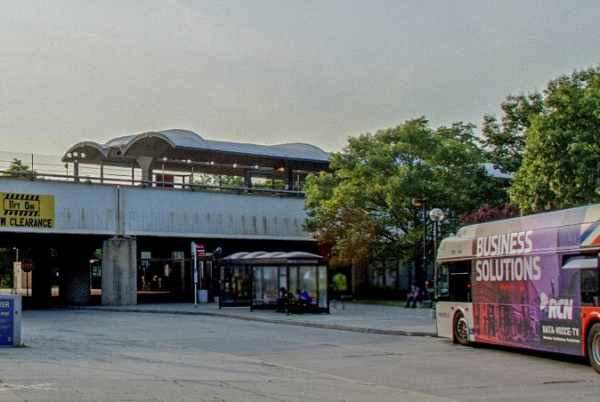
NBC Washington reported a late-night altercation at the Fort Totten Metro station on Galloway Street NE in Washington, DC turned into a harrowing shooting incident, leaving a man and a teenage boy critically injured, the Metro Transit Police reported on Friday, July 21, 2023.
According to authorities, the incident unfolded just before 11 p.m. Thursday night when a group of individuals engaged in a heated altercation at the busy station. During the fight, two people became entangled in a struggle over a firearm, resulting in the weapon falling to the ground. In a shocking turn of events, one of the individuals picked up the firearm and discharged it, hitting a man nearby.
In response to the gunshot, an armed special police officer, contracted by Metro to patrol the Fort Totten station, quickly intervened. The officer confronted the alleged shooter, and a fierce exchange of gunfire ensued between the two. The suspected shooter was struck by the gunfire, and the officer bravely pursued him out of the station, eventually detaining him.
Emergency medical personnel promptly arrived at the scene and transported both the teenage boy and the injured man to a nearby hospital with critical injuries.
In the aftermath of the incident, law enforcement authorities confirmed the recovery of the suspect's firearm near the fare gates.

In the wake of the alarming shooting, questions arise about the legal recourse available to victims of violence on public transit. To shed light on this critical issue, we sat down with Laurence Banville, Esq., an experienced gun violence lawyer based in Washington, D.C. In this exclusive interview, Mr. Banville delves into the potential civil actions victims can take against those accountable in such cases.
Darla Medina (DM): In such cases of violence on public transit, what recourse do victims have in seeking justice?
Laurence Banville (LB): When individuals become victims of violent crimes, such as stabbings or shootings on public transit, they often have legal options to pursue justice through civil actions. In the context of gun violence on public transit, victims can potentially file civil lawsuits against those accountable for their injuries.
DM: Could you explain the process and grounds for filing such a civil case?
LB: Certainly. In cases like this, victims and their families may consider filing civil lawsuits against the alleged shooter, as well as any other individuals or entities deemed responsible for the incident. This can include the transit authority if negligence or inadequate security measures are found to have contributed to the tragedy.
DM: What role does negligence play in such cases, particularly concerning public transportation?
LB: Negligence can be a crucial factor in civil cases involving public transportation violence. Transit authorities have a duty to provide a reasonably safe environment for their passengers and should take proactive measures to prevent foreseeable violent incidents. If there is evidence that they failed to meet this duty, such as insufficient security measures, it could potentially form the basis of a negligence claim.
DM: For victims and their families seeking justice, what advice do you have for them during this difficult time?
LB: My advice to victims and their families is to focus on healing and recovery first and foremost. It's essential to seek medical attention promptly and engage the support of counselors or therapists to cope with the emotional toll of such traumatic events.
Additionally, I would strongly recommend consulting with an experienced violent crimes attorney to understand their legal options fully. An attorney can guide them through the complex legal process, advocate on their behalf, and work tirelessly to ensure they receive the compensation they deserve.
 info@legalherald.com
info@legalherald.com